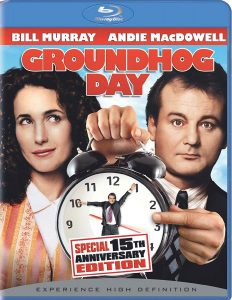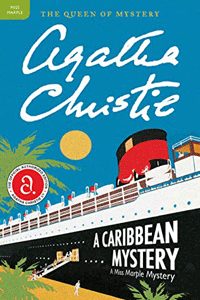Try not to think too much about the murders that might be committed in St. Mary Mead while she’s gone, but Miss Marple vacations on the island of St. Honore in “A Caribbean Mystery” (1964). The location is the most notable thing about the novel, since Agatha Christie rarely ventures across the Atlantic.
Getting away for a while
“A Caribbean Mystery” doesn’t offer much else that’s new, but it is a tight and readable yarn at 180 pages. You might recommend it to a newcomer as a beach read that doesn’t require as much brainpower as other Christies. Which isn’t to say it’s not crisp and smart: While Marple may occasionally worry about losing her edge in her old age, Christie herself had nothing to fret over.
Christie was in her 30s when she invented the elderly Marple; by the time of “Caribbean” she was in her 70s, and perhaps could relate to her crime-solving spinster: She’s still sharp, but she’s not gonna chase down and apprehend a suspect. (She has someone do that at her command here.)

“A Caribbean Mystery” (1964)
Author: Agatha Christie
Genre: Mystery
Series: Miss Marple No. 10
Setting: St. Honore, Caribbean Sea, 1964
Marple is “about a hundred,” according to fellow vacationer Mr. Rafiel, who himself is “a broken-up old crock.” The entertaining oldsters share a conversation in one of “Caribbean’s” most engrossing chapters. He’s decrepit enough to be ruled out as a suspect in this string of murders, and therefore he makes for a good sounding board.
Broadly, “Caribbean” is Marple’s answer to the Poirot novel “Evil Under the Sun” (1941). They’re vacationing at a beach resort, but there’s a touch of menace amid the relaxing setting. The sleuths’ differences stand out: Poirot makes himself noticed whereas Marple blends in.
Being far from home, she lacks official detectives to vouch for her crime-solving skills. This is good, in a way. “Caribbean” is like a throwback to her earlier days of observing from a position of near-invisibility.
Portrait of a serial killer
Potential motives include love matches and mismatches, and the notion of marrying for money. In the latter case, one suspect essentially makes a career out of it. Marple might see a pattern.
The inciting incident is fun to mull. Major Palgrave, one of those old men who loves repeating stories, tells Miss Marple of a murder, then says “Would you like to see a picture of a murderer?” But then he abruptly changes the subject as a group of their fellow vacationers approaches.
Someone who overheard Palgrave is the murderer – and that person continues his or her killing ways, permanently silencing Palgrave. But is he or she the murderer Palgrave was referencing in his tale? Or in the now-missing photograph?
It’s neat how so many possibilities spring from one idle conversation between Palgrave and Marple. And it’s amusing that Marple wasn’t paying close attention, instead only politely pretending to listen, an art form she had mastered with old windbags.

Murders out of time and place
A few light critiques can be leveled at “Caribbean.” There isn’t a distinct West Indies flavor to the proceedings, nor to the supporting cast. Christie notes the diversity of the vacationers in a descriptive paragraph, but there’s not much variety in the core cast. A South American woman pops in only for a few lines.
Europeans and Americans are the main characters, and I would’ve liked the three sets of middle-aged couples to be more distinct from each other.
Christie observes that a black resort staffer and her lover function as a married couple without actually being married – quite a cultural difference from old-fashioned England. These people are portrayed simplistically and they speak in stunted English as the author tries to capture the speaking rhythms.
“A Caribbean Mystery’s” series of murders – and the reasons for them – could ultimately happen anywhere. But I’m glad they happen on St. Honore. It’s good to get away every now and then – as long as you bring some comforts from home, such as your knitting and a sequence of murders to solve.
Sleuthing Sunday reviews an Agatha Christie book or adaptation. Click here to visit our Agatha Christie Zone.

